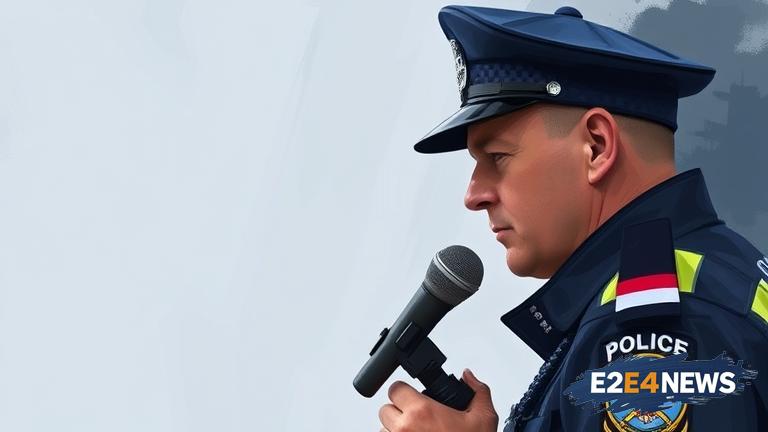A recent incident in the UK has raised concerns about press freedom and the relationship between journalists and public officials. A journalist had contacted a local councillor as part of an investigation, but was subsequently issued a harassment warning by the police. The warning was widely criticized by media organizations and freedom of speech advocates, who argued that it was an attempt to intimidate the journalist and stifle legitimate inquiry. The police have since apologized for the warning, acknowledging that it was an error and that the journalist had done nothing wrong. The incident has sparked a wider debate about the role of the police in regulating interactions between journalists and public officials. Many have argued that the police should not be involved in such matters, and that journalists should be free to contact and question public officials without fear of reprisal. The UK’s National Union of Journalists has welcomed the police apology, but has also called for greater clarity and guidance on the issue. The union has argued that journalists must be able to do their job without fear of harassment or intimidation, and that public officials must be held accountable for their actions. The incident has also raised questions about the use of harassment laws to silence journalists and suppress legitimate inquiry. Some have argued that such laws are being used to intimidate and bully journalists, rather than to protect vulnerable individuals from genuine harassment. The UK’s press regulator, IPSO, has also weighed in on the issue, arguing that journalists must be free to investigate and report on matters of public interest without fear of reprisal. The regulator has called for greater clarity and guidance on the issue, and has argued that the police must respect the rights of journalists to do their job. The incident has sparked a wider debate about the state of press freedom in the UK, with many arguing that it is under threat from a combination of factors, including government regulation, police intimidation, and online harassment. Despite these challenges, many journalists and media organizations remain committed to holding those in power to account, and to reporting on matters of public interest. The police apology is seen as a positive step, but many argue that more needs to be done to protect press freedom and ensure that journalists can do their job without fear of reprisal. The incident has also highlighted the importance of a free and independent press in holding those in power to account, and in promoting transparency and accountability. In a democratic society, journalists play a crucial role in investigating and reporting on matters of public interest, and in ensuring that those in power are held accountable for their actions. The UK’s media landscape is characterized by a diverse range of publications and broadcasters, each with their own unique perspective and approach. However, despite this diversity, many journalists and media organizations face similar challenges and threats, including government regulation, police intimidation, and online harassment. The incident has sparked a wider debate about the need for greater protection and support for journalists, and for more robust safeguards to ensure that press freedom is protected. Many have argued that the UK government must do more to promote and protect press freedom, and to ensure that journalists can do their job without fear of reprisal. The incident has also highlighted the importance of international cooperation and solidarity in promoting and protecting press freedom. Journalists and media organizations around the world face similar challenges and threats, and it is only by working together that we can promote and protect press freedom. The UK’s media community has welcomed the police apology, but has also called for greater action to protect press freedom and ensure that journalists can do their job without fear of reprisal. The incident has sparked a wider debate about the role of the police in regulating interactions between journalists and public officials, and has highlighted the need for greater clarity and guidance on the issue. Many have argued that the police must respect the rights of journalists to do their job, and that public officials must be held accountable for their actions. The incident has also raised questions about the use of harassment laws to silence journalists and suppress legitimate inquiry, and has sparked a wider debate about the state of press freedom in the UK.
